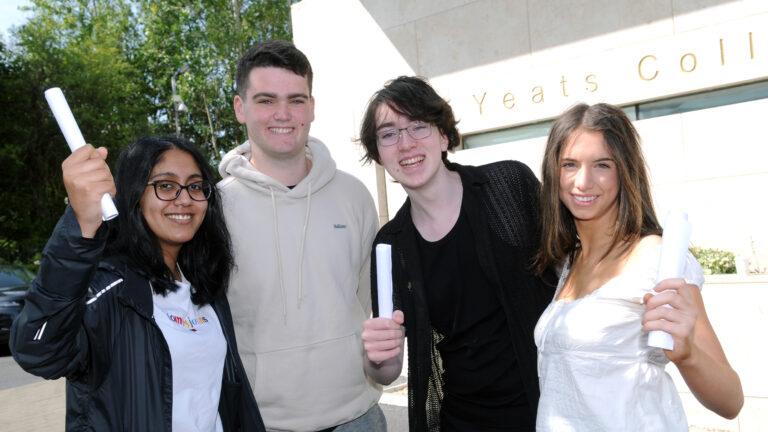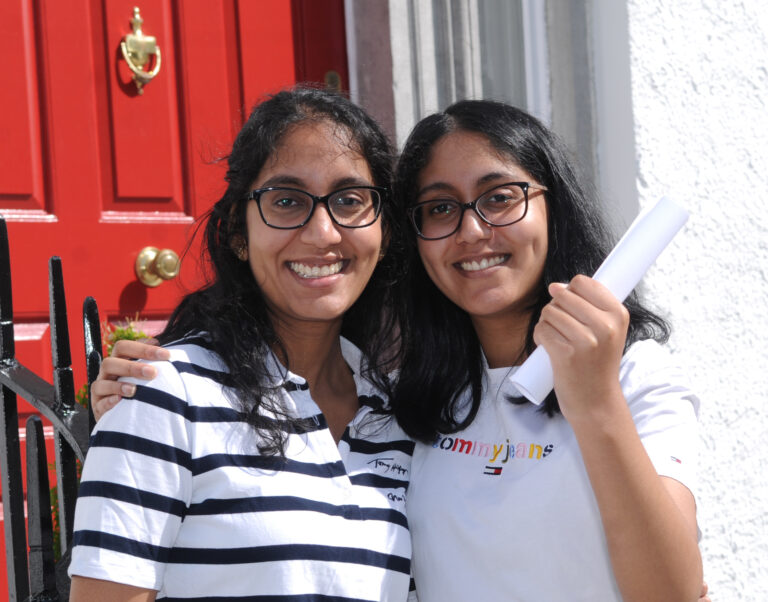Review 2024 by Dr Eoin Barrett
The 2024 Leaving Certificate Spanish Higher Level paper was well received by Yeats students and was consistent with recent years in terms of the level of difficulty encountered, though the Listening, as we have come to expect, contained some tricky elements and required some quite specific details in places for full marks.
Section A
In Section A, the Prescribed Literature option on Gabriel García Márquez’s Relato de un náufrago should have been straightforward for well-prepared students. The passage selected describes a scene towards the end of the novel when Luis Alejandro Velasco is recovering from his ordeal in the Naval Hospital of Cartagena. The related questions were accessible and consistent with previous papers in terms of style.
This year’s ‘Journalistic Text’ examined the recent rise in popularity of Spanish language music internationally and explored some of the reasons for the success of artists such as Bad Bunny, Karol G and Rosalía.
Question 1 (a-e) should have got most students off to a nice start, as the key words in the questions provided good guidance to candidates in terms of identifying the passages that contained the relevant answers, and there weren’t too many difficult terms to work out.
Question 2 should have been manageable for students who got plenty of practice with this type of question, though they may have struggled to find an equivalent to the word ‘auge’, which can mean ‘peak’, ‘rise’ or ‘boom’.
(a) increíble – alucinante
(b) auge – éxito
(c) negar – ignorar
In Question 3, as always, it was important that students provided the English equivalent to the phrases indicated by referring back to the article for context. The passages chosen were reasonable, though the terms ‘de habla hispana’ (Spanish-speaking) and ‘encabezar’ (to head/headline) may have proved tricky when seen in isolation.
(a) …hizo historia al ser el primer músico de habla hispana en encabezar…
…he made history as the first Spanish-speaking musician to headline…
(b) Hay que reconocer el poder del enorme mercado…
One has to recognise the power of the enormous market…
(c) Se ve claramente que la música latina se expande por todo el mundo…
One sees clearly that Latin music is expanding all over the world…
Question 4 offered two short options to paraphrase in Spanish: ‘se celebra’ and ‘Recientemente’. Both options were easy to understand, but students may have had to pause to think of equivalent Spanish phrases that conveyed a similar meaning.
The Section A short comprehension questions were accessible, and good higher-level students should have secured full marks here.
The first highlighted the case of a resident of Palma de Mallorca who received a prison sentence and a heavy fine for parking his car in a space reserved for disabled drivers using a false permit.
The second short comprehension focused on the city of Cuenca, which was selected as the Spanish Food Capital of 2023.
Section B
The Section B long comprehension task featured an article on the curious case of the Buenos Aires Hurling Club, where rugby, hockey and tennis are the most popular sports, and hurling has only recently seen a revival in popularity.
Questions 1 and 3, which require students to find words or phrases in the text equivalent to those provided in the question, were a bit tricky in places, especially the phrase ‘porvenir prometedor’ (promising future), given that ‘porvenir’ is an unusual word, and looks more like an infinitive verb than a noun. As always, students had to ensure that they only included the exact equivalent word or phrase to gain the marks.
1.
(a) detalle sorprendente – dato curioso
(b) levantó mucho interés – generó afición
(c) porvenir prometedor – futuro brillante
(d) desde entonces – A partir de ese moment
(e) salieron a saludarlo – fueron a hablar con él
3.
(a) famosa – conocida
(b) orígenes – raíces
(c) alternativas – opciones
(d) competiciones – torneos
(e) socios – miembros
The phrases to be translated in Q.2 were manageable. They required some specific vocabulary, but these words should have been possible to work out from the context.
(a) …la migración masiva de irlandeses a mediados del siglo diecinueve.
…the mass/massive migration of Irish people in the middle of the nineteenth century.
(b) … decidieron adaptar sus habilidades y formar un equipo masculino …
… they decided to adapt their skills and form a men’s/male team…
(c) … han alcanzado un nivel que les permite competir …
… they have reached a level that allows them to compete…
Students should also have done well in Q. 4, provided they included as much detail as they recognised as being relevant to the question.
The Opinion Piece titles were as follows:
(a) Hay que celebrar nuestra cultura.
Our culture has to be celebrated.
(b) Vivir en otro país puede ser difícil.
Living in another country can be difficult.
(c) El deporte es importante para todos.
Sport is important for everyone.
These titles were clear and easy to understand and offered students plenty of choice and scope for expression. These essay titles once again highlighted the need for students to develop their writing skills so that they can brainstorm and develop arguments in exam conditions rather than attempting to have a few essays memorised in the hope of fitting one of them to the title.
Section C
In Section C, the Dialogue Construction involved a scenario in which you have just arrived in Murcia, and you are meeting your Spanish flat-mate Gabriela for the first time. Most of the vocabulary required should have been familiar to students from their notes, their preparations for the Orals and previous years’ exam tasks. As with previous years, some of the words that students needed to translate featured in the opposite (i.e. Gabriela’s) side of the dialogue.
Candidates needed to pay very careful attention to the various Indicative verb tenses required for full marks (Present, Preterite, Imperfect, Present Perfect, Conditional and Future), and this year’s paper saw the return of the Subjunctive, used after ‘when’ with a future meaning:
…they are going to call you when they find it
…van a llamarme/me van a llamar cuando la encuentren
The Letter/Email option related to an article in a Spanish newspaper promoting Ireland as a holiday destination. Perhaps surprisingly, this task was quite similar to the 2023 option, so any student who had practiced with last year’s task could potentially have adapted their answer quite easily to fit this year’s iteration.
The Diary Entry invited the candidate to imagine they had just spent a year studying in Salamanca and were about to return to Ireland. As with previous years, this task was very open-ended in terms of what it asked you to express and should not have posed difficulties for students who had plenty of practice with previous years’ tasks and who had revised the sample answers provided.
The Note option asked students to imagine that they are working in a restaurant in Mijas, and that they must leave a note for their boss, Elena. While this year’s note was reasonably accessible, I still feel that the Diary Entry provided students with more scope and freedom to adapt material prepared in advance.
The Listening test was varied in terms of the topics examined and was on a par with previous years’ papers in terms of difficulty, but it should still have been manageable for students who had a broad range of vocabulary and who got plenty of practice with past and mock papers in the run-up to the exam. While the pace of the audio was reasonable, I felt that it was challenging in places to hear exactly what was being said, and there was certainly some vocabulary that would have proved tricky.
The paper featured an ad for a World Chess festival in Linares, an interview with Charo López, who hosts female-only travellers in her guest house, and an interview with personal trainer Iván Perujo.
There was a descriptive passage explaining the uses of the mobile app “MeToca”, designed to organise and coordinate household tasks, and another describing the Uruguayan city of Colonia de Sacramento.
The weather question was a little bit trickier than in previous years, featuring some lesser-used vocabulary such as heladas (frost), granizo (hail/hailstones) and niebla (fog/mist).
The final question featured a news item about a man who discovered a fortune in old Spanish pesetas while renovating a house in Galicia. This question was quite challenging in places, and it will be interesting to see how much detail is required for full marks when the marking scheme is published.
All in all, Yeats students should have been very happy with the 2024 Spanish Higher Level exam and should rest easy now and enjoy the summer. ¡Viva el verano!






